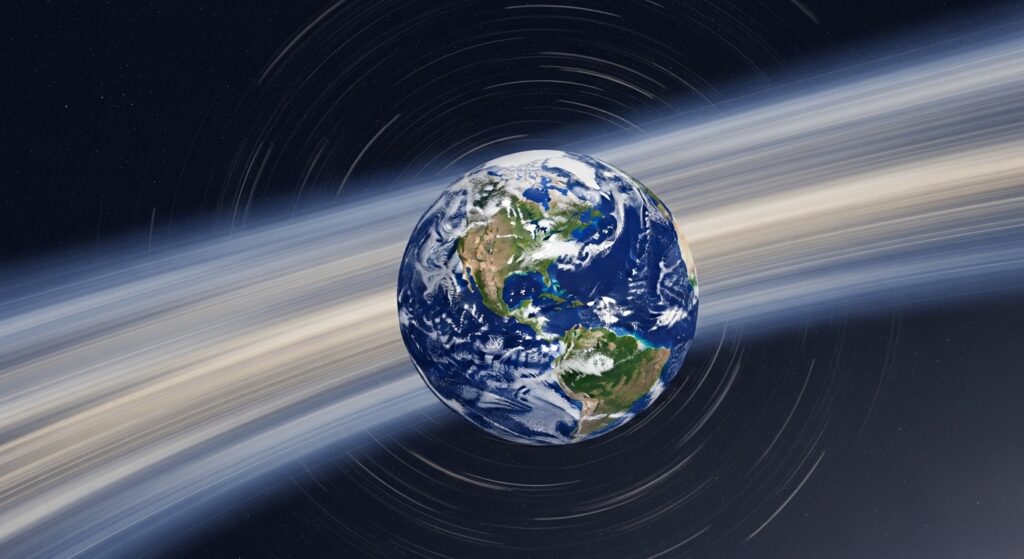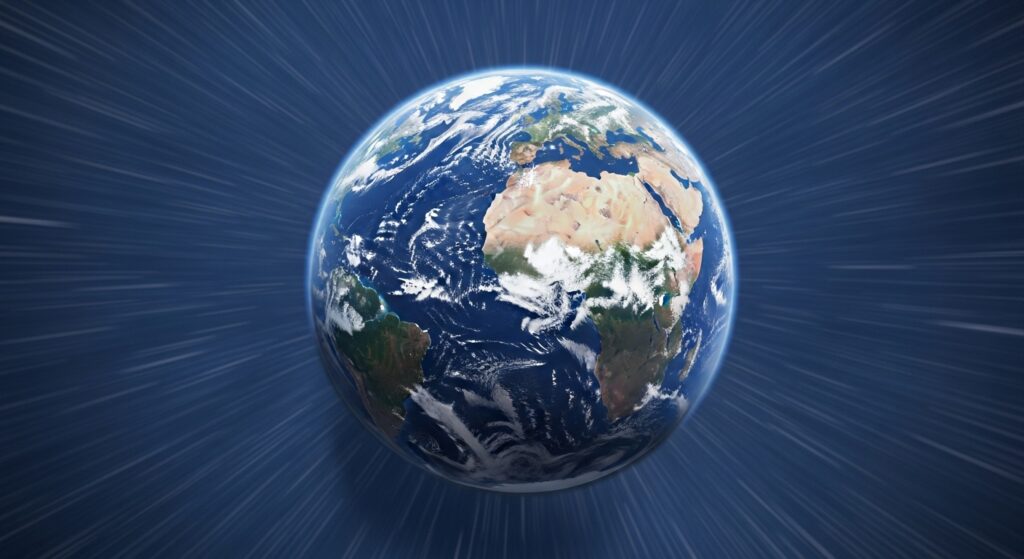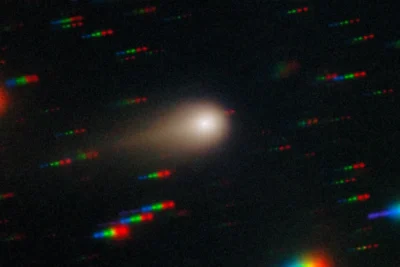
Earth is spinning faster: today is one of the shortest days of the year

By Writing TecNerds | 9 July 2025 | Science and Technology
The Earth is literally spinning faster, and today, July 9, marks the first of three especially short days scheduled for 2025. According to data from the Time and Date platform, in partnership with the International Earth Reference and Rotation Systems Service (IERS), our planet will complete its rotation 1.30 milliseconds faster than usual.
This intriguing phenomenon represents a significant change in Earth's rotational behavior, which has been surprising scientists since 2020. In the last five years, 28 of the shortest days of History modern, countering decades of gradual deceleration caused by the gravitational influence of the Moon.
What's happening to our planet?

Historically, land rotation was slowing consistently. Billions of years ago, a day lasted only between three and six hours. The gravitational action of the Moon gradually stopped this rotation until we arrived at 24 hours today. However, since 2020, this pattern has changed dramatically.
Graham Jones, especialista em rotação planetária, explica que "variações de longo prazo na velocidade de rotação da Terra são afetadas por uma longa lista de fatores, que inclui o movimento complexo do núcleo, dos oceanos e da atmosfera da Terra". O pesquisador destaca que essa aceleração atual é considerada "incomum" pela comunidade científica.
Key dates for 2025
Besides today, scientists have identified two other critical dates: July 22nd and August 5th. These days can break historical records of rotational speed, representing the fastest moments ever recorded since the beginning of modern measurements in 1973.
Interessantemente, essas datas coincidem com períodos em que a órbita lunar está em seu ponto mais distante da Linha do Equador. O movimento da Terra em seu próprio eixo tende a ser mais rápido quando nosso satélite natural se encontra nessa posição específica.
"Estamos diante de uma aceleração incomum", afirmam os cientistas do IERS, destacando que os modelos atuais não conseguem explicar completamente este fenômeno.
Possible causes of the phenomenon
Although there is no definitive explanation, researchers raise several scientific hypotheses. Among the main theories are changes in the movements of the terrestrial nucleus, changes in oceanic and atmospheric currents, and melting glaciers causing redistribution of planetary mass.
Leonid Zotov, da Universidade Estatal de Moscovo e especialista em rotação terrestre, junto com seus colegas Christian Bizouard e Nikolay Sidorenkov, apontam para um fenômeno chamado "Oscilação de Chandler" - um movimento irregular dos polos geográficos da Terra através da superfície do globo.
O aquecimento global também emerge como possível fator contribuinte. O derretimento acelerado de geleiras não apenas eleva o nível dos mares, mas também redistribui massa pelo planeta, potencialmente afetando a dinâmica rotacional.
Technological and practical impacts
Although imperceptible in everyday life, this acceleration has significant implications for systems technology. GPS devices, communication networks and navigation systems depend on extreme temporal accuracy. Differences in milliseconds can cause errors in global positioning and synchronization calculations.
Se a tendência de aceleração continuar, os cientistas podem precisar implementar um "segundo intercalar negativo" - algo nunca feito antes na história. Atualmente, segundos intercalares positivos são ocasionalmente adicionados aos relógios atômicos para compensar a desaceleração natural da Terra.
Continuous monitoring
The IERS will continue to closely monitor Earth's rotation in the coming months, with regular updates on the planet's behavior. This monitoring is crucial to understand whether we are facing a temporary anomaly or a fundamental change in Earth's rotational behavior.
While the shorter days of 2025 serve as a reminder that our planet is a dynamic system, the scientific community works intensely to unravel the mysteries behind this unexpected acceleration. The answer can reveal fundamental aspects of the inner functioning of our planet and its interactions with cosmic forces.


Related Articles